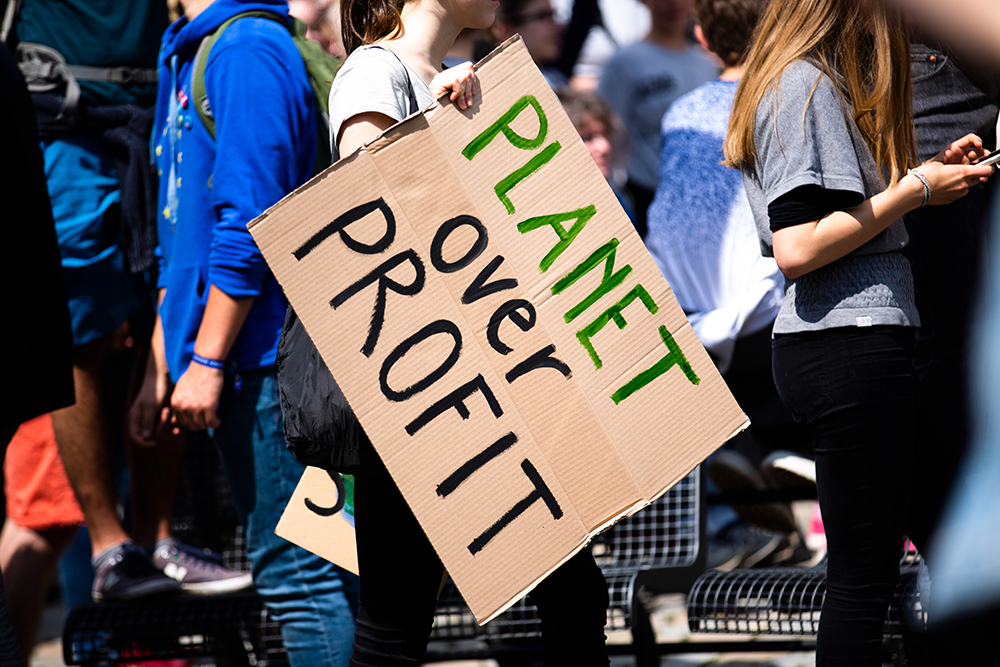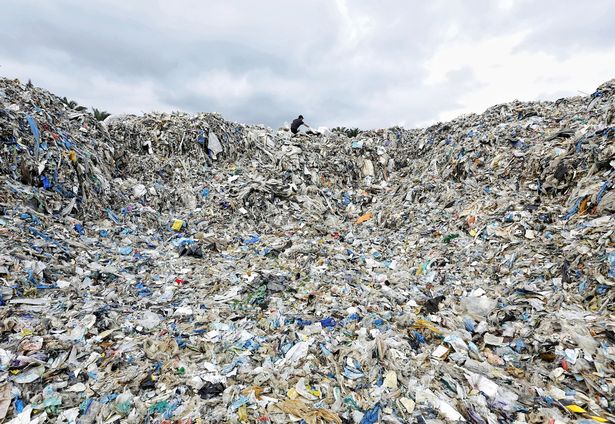I go in swings and roundabouts with how positive I feel about the current plastic crisis. Burnout is a real problem amongst us Dumplings trying to do our bit day after day, striving to make a difference, and then getting knocked for six when we see another crushing headline that reads something along the lines of, “No Square Inch of Earth Left Void of Microplastic Pollution” or “Time To Terraform Mars?“

The latest repercussion of a century’s worth of plastic pollution that has been floating around my brain has been its impact on sperm counts. Yes, you read that right. I’m no dude, but considering sperm is, you know, vital for baby-making and thus the future of civilization, it’s alarming to read that sperm counts are down by 50% in the last half a century, suspected to be due to endocrine-disrupting plastics ubiquitous in our environment. Combine this with estrogen-mimicking BPA that causes chaos in those with lady parts and you’ve got a recipe for fertility disaster.
But still I trudge on, with my reusable coffee cup and water bottle and menstrual aids that all help me reduce my plastic footprint ever so slightly, even though I’m far from perfect and frustrated on the daily that we are forced to operate in a broken system. Despite those oppressive news stories that can make me feel like a flea in a tornado: powerless and invisible, I persist bit by bit because I have to. It’s the only way I can sleep at night: knowing I’m living by my values.
Sometimes though, a positive story crosses my radar and it is glorious. It fills me with hope and reminds me that the actions of many small fleas (just like me) can make magical things happen on a much larger scale than any one individual in his or her little microcosm. Some cool things are happening in the pipeline here in the UK and I’m hoping to see others jump on the bandwagon. If you’re in need of a little energy boost, let this be it.
We’re at the start of festival season, with a summer ahead of trying to stay hydrated while dancing away to our favorite bands into the early hours. If you’ve ever been to a festival, you’ll know that they are havens for plastic waste: cups, straws, cartons, wrappers, face wipes and everything else that we use to feed ourselves and look Insta-ready. But they’re also opportunities for new thinking to emerge; hubs from which social change can emanate. Particularly if you’re at one of the forward-thinking meccas like Glastonbury or Green Man, Blue Dot or Shambala, to name but a few majestic wonderlands created for a few days each year on this small little island. Inspiration born at a festival can be long-lived and brought back into reality afterwards, implemented in every day life.
When it comes to plastic waste at festivals, even with the best intentions of recycling all those dropped cups and silverware, we need to start thinking differently. British chef Hugh Fearnley-Whittingstall recently exposed 20-foot-high heaps of “recycled” waste from British soil, piled in Malaysia for dumping or burning. It’s the old “out of sight, out of mind” mentality that is driving nations like the UK to persist with old habits that are destroying us and all other species.


When I read that Live Nation—a global promotor of festivals including some of the biggest in Britain (Reading, Leeds, Wireless and Download)—have vowed to make their events and venues single-use plastic free by 2021, my heart nearly leaped out of my chest. These are festivals known for the music, sure, but honestly not at all for any kind of eco ethos. Hence the leaping heart. It’s big news. President Michael Rapino told The Guardian that “Live Nation has the opportunity and responsibility to provide our artists and fans with a live music experience that protects out planet.” I couldn’t agree more.
This is the latest announcement following that of legendary Glastonbury festival (known for its “Love the farm, leave no trace.” ethos) earlier this year to ban all single-use plastic bottles from its festival grounds from this summer onwards. As a point of reference, we got through 1.3 million of them in 2017 (yikes!), not to mention the vast swathes of other plastic items that litter Worthy Farm year after year.
These changes come as the government has also announced that straws, cotton buds and drinks stirrers will be banned from sale in England from April 2020. They’re small changes, but they symbolize a new norm; a way of doing things without creating so much waste in the process without the mindless consumption.
We all want the same thing at the end of the day: a beautiful planet devoid of potent plastic toxicity. The responsibility to get to that utopian dream, if you will, must come from us all; from the beastly large scale of the government and large corporations right down to the tiniest consumer. Do your bit, inspire others where you can and campaign for the kind of change you want to see in the place that you call home. Changes are happening and more are on the way.
If you’re headed to a festival or two this summer, here are some tips you might want to try. What are your favorite ways of minimizing your plastic footprint?
Also by Kat: Here’s What Will Happen When Deserts Become Dead Zones Because Of Climate Change
Is Anti-Pollution Skincare Worth The Hype—And The Splurge?
Get more like this—Sign up for our daily inspirational newsletter for exclusive content!
__
Photo: Markus Spiske on Unsplash & The Mirror,




